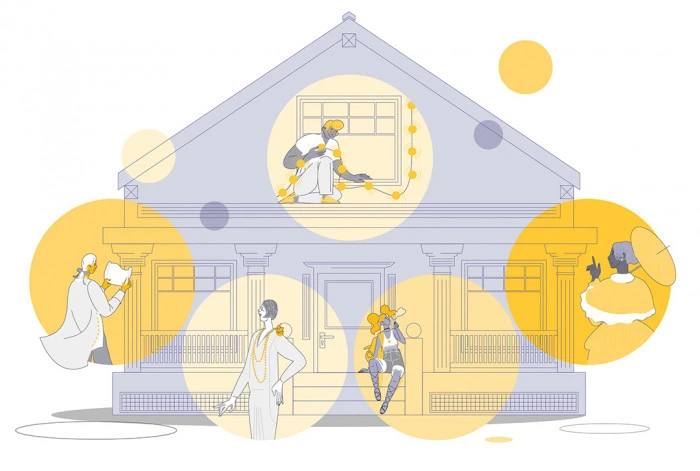Share what you know,
and discover more.
Share what you know,
and discover more.

-

- Marley Zielike
Martin Luther King, Jr. National Historic Site, Ebenezer Baptist Church, 407 Auburn Ave NortheaSt Atlanta, Fulton County, GA
The Martin Luther King, Jr. National Historic Site is located in one of the oldest neighborhoods in Atlanta - the Upper Auburn Avenue area. Originally called Wheat Street in honor of one of Atlanta`s pre-Civil War merchants. The name was changed in 1893 to the more stylish Auburn Avenue. As early as the 1880`s Auburn Avenue became the center of Atlanta`s black business and professional community. The interrelationship of residential, commercial, and religious architecture together with the strong black cultural history is representative of the life and work of Dr. King to the extent that the area was declared a National Historic Landmark in 1977 and a unit of the National Park Service in 1980. Ebenezer Baptist Church is the spiritual home of Dr. Martin Luther King, Jr., and was the location of many Civil Rights meetings. The church was founded in 1886 by Rev. John Parker who was pastor until his death in 1894...
Martin Luther King, Jr. National Historic Site, Ebenezer Baptist Church, 407 Auburn Ave NortheaSt Atlanta, Fulton County, GA
The Martin Luther King, Jr. National Historic Site is located in one of the oldest neighborhoods in Atlanta - the Upper Auburn Avenue area. Originally called Wheat Street in honor of one of Atlanta`s pre-Civil War merchants. The name was changed in 1893 to the more stylish Auburn Avenue. As early as the 1880`s Auburn Avenue became the center of Atlanta`s black business and professional community. The interrelationship of residential, commercial, and religious architecture together with the strong black cultural history is representative of the life and work of Dr. King to the extent that the area was declared a National Historic Landmark in 1977 and a unit of the National Park Service in 1980. Ebenezer Baptist Church is the spiritual home of Dr. Martin Luther King, Jr., and was the location of many Civil Rights meetings. The church was founded in 1886 by Rev. John Parker who was pastor until his death in 1894...
Martin Luther King, Jr. National Historic Site, Ebenezer Baptist Church, 407 Auburn Ave NortheaSt Atlanta, Fulton County, GA
The Martin Luther King, Jr. National Historic Site is located in one of the oldest neighborhoods in Atlanta - the Upper Auburn Avenue area. Originally called Wheat Street in honor of one of Atlanta`s pre-Civil War merchants. The name was changed in 1893 to the more stylish Auburn Avenue. As early as the 1880`s Auburn Avenue became the center of Atlanta`s black business and professional community. The interrelationship of residential, commercial, and religious architecture together with the strong black cultural history is representative of the life and work of Dr. King to the extent that the area was declared a National Historic Landmark in 1977 and a unit of the National Park Service in 1980. Ebenezer Baptist Church is the spiritual home of Dr. Martin Luther King, Jr., and was the location of many Civil Rights meetings. The church was founded in 1886 by Rev. John Parker who was pastor until his death in 1894...Posted Date
Sep 27, 2021
Source Name
Library of Congress
Source Website
Delete Story
Are you sure you want to delete this story?










